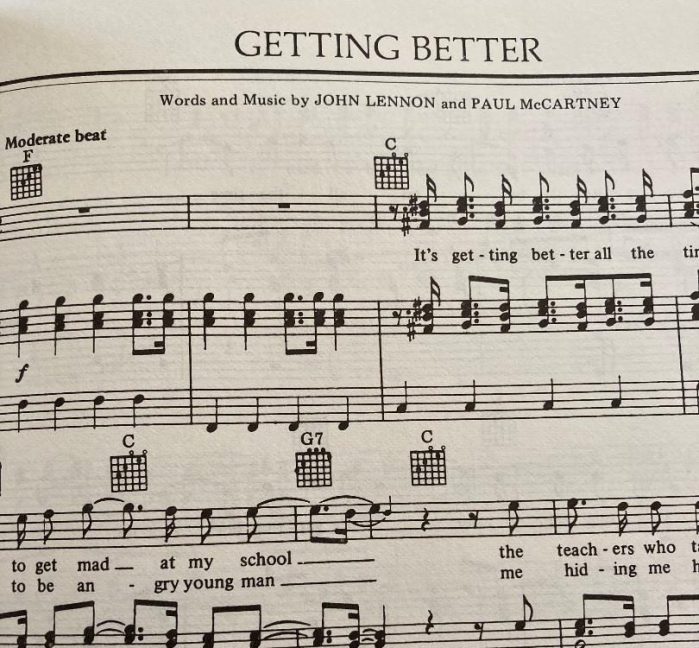
It’s that time of year for me, another trip around the sun complete. This one is not quite a milestone count, but as good a time as any to reflect on purpose. Age will do that to you. We don’t get to reflect indefinitely. That which goes into our permanent record is anything but limitless.
Covid-19 will soon pass into history, but not its devastation. The time it has given us to think about our uses of time may be one of its few constructive legacies
Do we look externally for validation or is it intrinsic? What is a job well done? Are we meant to behave as survivalists with a primary worry of self or something different?
Giving is a curious notion. Perhaps it presents a choice that is inescapable. We do or we don’t. We make a choice even if we don’t make a choice.
I do wonder at length why we give. It’s easy to be conned and give wrong. The charlatans and traps outnumber our investigative hours. The risk of being fooled is an occupational hazard. I’ve made peace with that.
Here’s one good reason to take the risk and give: When we believe in others, we reinforce their courage to believe in themselves. When we share compassion with others, we demonstrate that compassion is possible and can be a virtuous circle.
We are directed to welcome the stranger. Soon after that our bond becomes our gift.
I find myself increasingly thinking about the notion of fairness. I do believe the arc of the moral universe bends toward justice, but I find the pace of alteration lethargic and unsatisfying. Are things better than they were 50 years ago? My father says yes and he has a 40% premium on years of observation to mine so I’ll go with his affirmation, but better is not the same as good. Relative unfairness is still unfairness.
Black Lives Matter shows us conclusively that the application of law is unfair. Two and a half million dead globally of coronavirus shows us that the availability of healthcare is unfair. The wealth of stock market gains for the few against the lost jobs and bankrupt businesses of many is almost violently unfair. Unfairness is not solvable. It is at best addressable through personal generosity and accessible charity.
Woke isn’t working. The Dr. Seuss debate was not a debate at all. A company for its own reasons decided to exercise copyright authority and stop selling certain books. It has that right. That is not book banning. No government or autocratic mandate was issued. If you still want for some reason to read these books they remain available at libraries, specialty stores, or in digital form.
I find the debate around capitalism equally disingenuous. If you think you have reason to storm the Capitol because socialism is coming for your freedom, you are deluded. There are no pure forms of economy. They are all mixes of this and that, some weighing more heavily in one direction or another, but always open to reversion by market forces.
Likewise, any cheesy rhetoric that would seek to undermine capitalism in the extreme is pointless. Free enterprise has created unbounded benefits for billions. No, it is not equally or fairly distributed. There aren’t enough recognized referees in the rough and tumble. Policies that ensure ardent competition inspire innovation with incentive compensation. That kind of moderate regulation protects our livelihoods and drives imaginative initiatives without useless polarization.
If you’re really worried about economic instability, worry about runaway income inequality. Without thriving buyers and broad access to manageable credit, there is little need for growth in sellers.
I am both beneficiary and critic of our system. If you’ve worked with me or read any of my books, you know I am not shy or apologetic about this.
I love our nation. I love free enterprise. I love working hard.
I despise exploitation. I despise greed. I despise arrogance and lack of humility.
Hegelian dialectic has taught me these head-banging notions can co-exist.
I love the impossible challenge, the learning that comes from failure, the teamwork of a shared victory overcoming competitors and naysayers.
I despise the selfishness, self-congratulations, and coldness that comes when we fail to recognize that too many trusting, hopeful, well-meaning individuals tirelessly try in their own way to navigate daunting obstacles, but often end up with little or nothing.
I believe we begin to bridge the gap by giving. We can give our time and attention. We can give money. We can give opportunity. We can give understanding and empathy.
As it becomes clear that there are fewer trips around the sun ahead of me than there are behind me, I find myself retreating to the existential. I find less meaning, reason, and justification in fairness than I hoped I might find at this age. At the same crossroads, I see time as more precious and commitment to social justice more urgent. I know I can’t fix much, but where I can have a slight impact, time is increasingly shorter.
I think perhaps we give to beat the clock. We can see a life change before our eyes because of something caring we do, but we have to endeavor to do it.
We give because all forms of faith suggest it is our duty. We don’t have to agree on spiritual reckoning to have this in common. We don’t have to believe in anything more than the tangible world we see to know we are expected to do something unexpectedly selfless with the disproportionate gifts we are awarded.
It is our calling to repair the world. Civilization will remain conflicted and in conflict, because human beings are imperfect, troubled, fundamentally flawed while evolving. That doesn’t give us a get-out-of-jail-free card. Existential does not have to mean cynical. It can mean we are empowered to consider the unfairness around us as a challenge to be met, an uneven distribution of pain to be healed, a sense of acknowledgment if not quite purpose.
We give to be more complete.
We give to be part of a whole that has been shattered by our own achievements.
We give because the math suggests there is little other way to balance a scale that assures us history will maintain its imbalance.
We give to combat rhetoric, indifference, and convenient but incomplete argument.
We give because justification is not justice, and because words will always fail us.
We give to remind ourselves we are human, and we have no choice to be anything otherwise.
Whatever necessary mission that elevates your imagination, whatever human cause that fuels your passion, consider increasing your commitment. No, it’s not a carbon offset, it’s not retiring guilt, it’s not a debt you owe or a pledge against salvation.
It’s the right thing to do, to whatever extent you can. It’s not hypocritical and it’s not posturing. It’s how you can be more dimensionally human.
An investment in your belief set is a pact with yourself. The outcomes of your contribution can carry you many more times around the sun with reason to renew your journey. Stay honest, stay measured, stay authentic. That distant, mythic, flickering light at the end of the tunnel has cascading spectrum to shine on you.
_______________
Photo: Pexels


